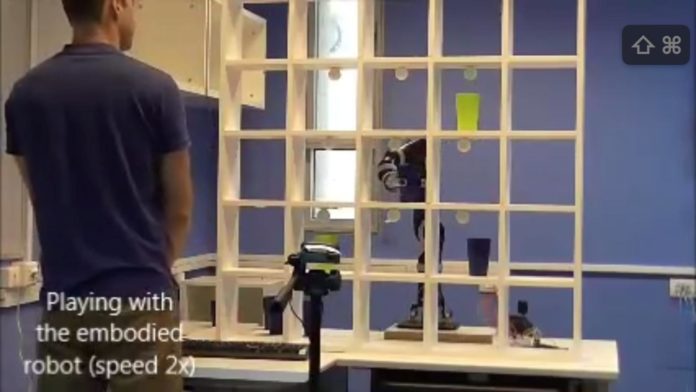Analysts from Ben-Gurion University of the Negev (BGU) in Beer-Sheva, Israel, have demonstrated a robot that plays Tic Tac Toe with rehabilitation patients to enhance real-life task performance.
Scientists planned a game with a robotic arm to simulate “3D Functional Activities of Daily Living”. This groundbreaking approach requires a lot of research to determine the optimal conditions.
Dr. Shelly Levy-Tzedek of BGU’s Department of Physical Therapy and Zlotowski Center for Neuroscience said, “Playing Tic Tac Toe with a set of cups (instead of X’s and O’s) is one example of a game that can help rehabilitate an upper limb. A person can pick up and place many cups while enjoying a game and improving their performance of a daily task.”
Analysts compared study members’ inspiration to play with a robot versus an arrangement of computer-controlled LED lights to decide the significance of collaborating with a genuine physical robot.
They tried the framework on 62 solid right-gave individuals from two age groups: 40 young adults around 25 years of age (23 ladies and 17 men) and 22 more seasoned adults around 75 years of age (10 ladies and 12 men). Both groups favored the automated framework over the LED lights framework. The more established adults said it was more human-like, while the young adults revealed the robot was additionally intriguing, fun, and engaging.
Both groups selected the robotic system over the lights when asked which partner they would prefer to play two additional games with. This suggests that the robot’s movement influenced human movement.
Meanwhile, individuals will keep interacting with an automated gadget in a social-like setting. That exemplification assumes a critical part, which is a positive sign for the future of such systems. Since they have set up a possibility, the analysts suggest testing their system on restoring stroke victims.
Journal Reference
- Eizicovits, Dannya, Edan, Yaela, Tabak, Irisb, Levy-Tzedek, Shelly. Robotic gaming prototype for upper limb exercise: Effects of age and embodiment on user preferences and movement. Restorative Neurology and Neuroscience, vol. 36, no. 2, pp. 261-274, 2018 DOI: 10.3233/RNN-170802
